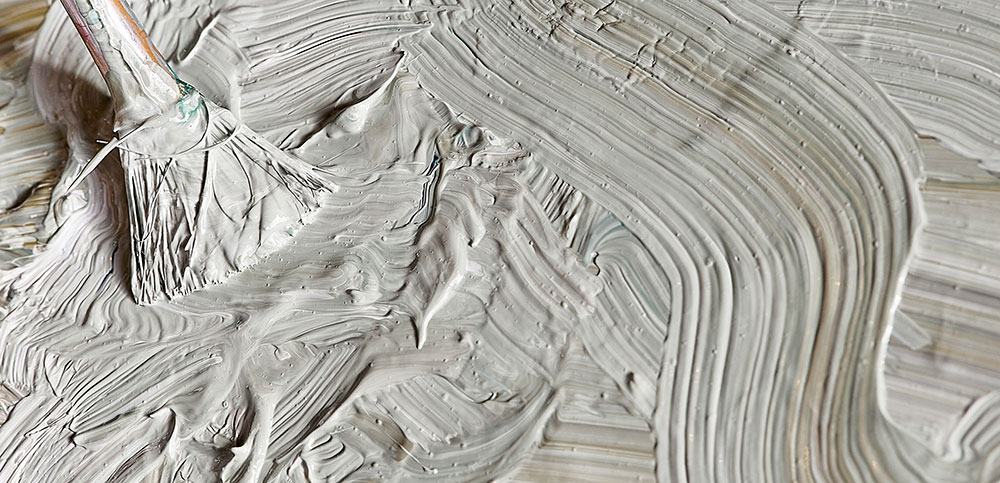Vaginal Dryness
Are you experiencing vaginal dryness? If yes, you are far from alone.
Although most women don’t want to talk about it, vaginal dryness can happen at any age and for a number of different reasons.
To some, it may seem like a small health problem to have, but vaginal dryness can detrimentally affect your sex life and your mental health. Whether you experience chronic vaginal dryness or you only experience dryness every once in a while, the below guide will explain everything you need to know about vaginal dryness
Read on to discover:
- Main vaginal dryness causes
- Most common vaginal dryness symptoms
- How vaginal dryness is diagnosed
- The best treatments for vaginal dryness
- When to see your GP about vaginal dryness
- How to treat vaginal dryness at home
- How to treat chronic vaginal dryness
- Vaginal dryness and the menopause
- Breastfeeding and vaginal dryness
- How to prevent vaginal dryness
- Vaginal dryness FAQs
What are the main causes of vaginal dryness?
Normally, the walls of the vagina are lubricated with a thin layer of clear liquid. This liquid is designed to keep the lining of your vagina healthy and elastic.
If you experience a drop in oestrogen levels, then this reduces the amount of moisture available which causes vaginal dryness. There are several reasons why this may happen.
Menopause
Vagina dryness is incredibly common during menopause and even more prevalent in women after the change. Menopause can also make the vagina thinner and less elastic. This is known as a condition called vaginal atrophy, which can make sexual intercourse painful.
Childbirth and breastfeeding
It is common for the vagina to feel drier and less lubricated after childbirth. This is because of the lower levels of oestrogen in the body compared to when you were pregnant. If you are breastfeeding, you will also have less oestrogen in your body, which can contribute to vaginal dryness.
Radiation or chemotherapy
Chemotherapy and radiation can cause a loss in oestrogen production in your ovaries, leading to similar symptoms to the menopause, such as vaginal dryness, thinning of the vagina, and pain during sexual intercourse.
Anti-oestrogen medications
If you are taking anti-oestrogen medications for uterine fibroids or endometriosis, these can cause vaginal dryness.
Surgical removal of the ovaries
If you have had your ovaries removed and you hadn’t already gone through menopause, your body will now start to go through the change. This means you will experience the same symptoms of the menopause, including vaginal dryness.
Insufficient foreplay
If you experience vaginal dryness when you have sex, this could be because of a lack of foreplay. Women need different types and duration of stimulation to become lubricated for sexual intercourse, so your vaginal dryness may be caused by insufficient foreplay.
Other possible causes:
- Antidepressants
- Allergy and cold medications
- An autoimmune disorder
- Depression or stress

What are the most common vaginal dryness symptoms?
The most common signs of vaginal dryness include:
- Feeling sore or itchy in and around your vagina
- Pain or discomfort during sex
- Frequent need to urinate
- Persistent urinary tract infections
It is worth noting that some of the above symptoms, such as vaginal dryness and soreness and a frequent need to urinate, can also be signs of other sexual health problems such as infections, so it is always a good idea to see your GP for a full sexual health check-up.
How is vaginal dryness diagnosed?
If you think you may be experiencing vaginal dryness, you should make an appointment with your GP to discuss your symptoms and any possible treatments.
During your appointment, your doctor will perform a pelvic exam to check your vagina for any thinning or redness. This will also allow them to rule out any other possible causes of vaginal dryness, such as an infection.
Your GP may also remove cells from your vaginal wall or cervix to carry out a smear test and take a blood sample to check your hormone levels and any other issues that may be causing your vaginal dryness.
This physical exam should not be painful, but some women do find it uncomfortable. During your appointment, it can also be a good idea to ask your doctor any questions you may have about your vaginal dryness and your sex life in general.
What are the best treatments for vaginal dryness?
Vaginal moisturizer
Vaginal dryness is rarely a sign of a serious medical condition. You can usually treat it at home with an over-the-counter vaginal moisturizer such as Multi-Gyn LiquiGel, to supplement the natural moisture in your vagina. You don’t need a prescription and can purchase Multi-Gyn LiquiGel online and in pharmacies.
Local oestrogen
When it comes to treating vaginal dryness through your GP, they may recommend using a local oestrogen. This is a type of oestrogen that is inserted directly into the vagina.
There are several different types of local oestrogen, including:
- A vaginal ring – This is a ring containing oestrogen that is inserted into the vagina for 90 days at a time.
- Vaginal gel
- Vaginal cream
- Vaginal tablet
When to see your GP about vaginal dryness?
If you have tried the above home remedies and you are still experiencing vaginal dryness, then your next course of action should be to see your GP.
You should also visit your doctor if you experience other symptoms, such as an unusual vaginal discharge or bleeding between your periods.
If you have vaginal dryness due to menopause or a change in your hormone levels, then your GP will be able to prescribe medications that increase oestrogen levels in your body.
How to treat vaginal dryness at home
There are several treatments available for vaginal dryness but if you would prefer to try and treat this issue yourself at home without seeing your GP, you may want to try the below:
Use vaginal moisturisers
You can find vaginal moisturisers that are specifically designed to combat vaginal dryness such as Multi-Gyn LiquiGel. These are placed directly into your vagina to keep it moist. Make sure that the vaginal moisturiser you choose is fragrant-free; otherwise, you may develop a yeast infection.
Use water-based lubricants
Before engaging in sexual intercourse, it can be a good idea to use a water-based lubricant. This can be applied in and around your vagina and onto your partner’s penis. Lubricants can also be used to facilitate masturbation and to enjoy sex toys.
Avoid lubricants that contain petroleum jelly or glycerine as these can cause irritation and make condoms less effective.
Engage in more foreplay
Vaginal dryness can be caused by a lack of foreplay, especially if you mostly notice vaginal dryness during intercourse. By engaging in more foreplay, you will increase blood flow to the vagina and encourage more vaginal secretions.
EDo pelvic floor exercises
Pelvic floor exercises help to strengthen the wall of your vagina, which, in turn, can lead to a reduction in vaginal dryness and dyspareunia symptoms. They also have the ability to improve your overall sex life and make sexual intercourse more enjoyable.

How to treat chronic vaginal dryness?
If you have tried multiple treatments and you are still struggling with vaginal dryness, then you are more at risk of painful sexual intercourse, low sexual desire, and bacterial or yeast infections.
It is also important to engage in regular sexual activity even if you do not feel able to engage in penetration. Talk to your partner about what feels good and focus on lots of foreplay.
Vaginal dryness and the menopause
Vaginal dryness is very common in women going through the menopause and post-menopause. This is because, during the menopause, your oestrogen and progesterone levels drop, which can cause a variety of symptoms, including vaginal dryness.
Other symptoms that you may experience during and after the menopause relating to vaginal dryness include:
- Irritation, burning, or itching
- A low sex drive
- Post-sex bleeding
- Recurring UTIs
Vaginal atrophy can also occur post-menopause, and this can contribute to vaginal dryness. To combat this condition, you can try over-the-counter moisturisers like Multi-Gyn LiquiGel.
Regular sexual stimulation can also help to fight back against vaginal atrophy as this helps to increase vaginal blood flow and vaginal secretions.
You may also want to ask your GP about vaginal dilators which can help to stretch and enlarge the vagina when tightening occurs.
Breastfeeding and vaginal dryness
Breastfeeding changes the hormone levels in your body, and this can cause some women to experience certain sexual changes, such as vaginal dryness.
Oxytocin, oestrogen, and prolactin all play a crucial role in both breastfeeding and sexual arousal. However, the postpartum period and breastfeeding can cause a dip in oestrogen levels which can cause vaginal dryness.
If you are struggling with breastfeeding and vaginal dryness, there are several vaginal dryness creams that are safe for breastfeeding mums. These can also be used to alleviate sexual intercourse.
You can also try a water-based lubricant, and you need to make sure that you are staying hydrated.
If you are experiencing severe vaginal dryness while breastfeeding, make an appointment with your GP who can check that you do not have any underlying conditions such as an infection, diabetes, or vaginismus that could be causing your vaginal dryness.
How to prevent vaginal dryness
There are several ways that you can prevent or minimise vaginal dryness, including:
- Having regular sex
- Only washing with perfume-free soaps
- Using a mild washing detergent
- Allowing more time for foreplay
Vaginal dryness FAQs
Why is my vagina dry?
Vaginal dryness is most commonly linked to low levels of oestrogen in the body. This can be caused by menopause, birth control, childbirth, breastfeeding, and cancer treatment. Some women also experience vaginal dryness due to insufficient arousal.
What does vaginal dryness feel like?
Vaginal dryness can make you feel sore and itchy in and around your vagina. It can also make sex painful or uncomfortable. Some women also feel the urge to urinate more often and are more susceptible to urinary tract infections.
How to get rid of vaginal dryness?
There are several treatments available for vaginal dryness, including topical oestrogen creams or moisturisers to reduce the symptoms of vaginal dryness.
Why do I get dry after I come?
Dryness during intercourse is common in women and is typically caused by lower levels of oestrogen in the body. This means that even if you are enjoying sex, you can still experience vaginal dryness. To combat vaginal dryness during sex, use a water-based lubricant and ensure that you enjoy enough foreplay before you engage in penetrative sex.
At what age does a woman stop getting wet?
Vaginal dryness is more common in menopausal and post-menopausal women. This is because the ovaries stop producing the female hormone oestrogen, which can cause symptoms such as vaginal dryness, a low sex drive, and pain during sexual intercourse.
No products found